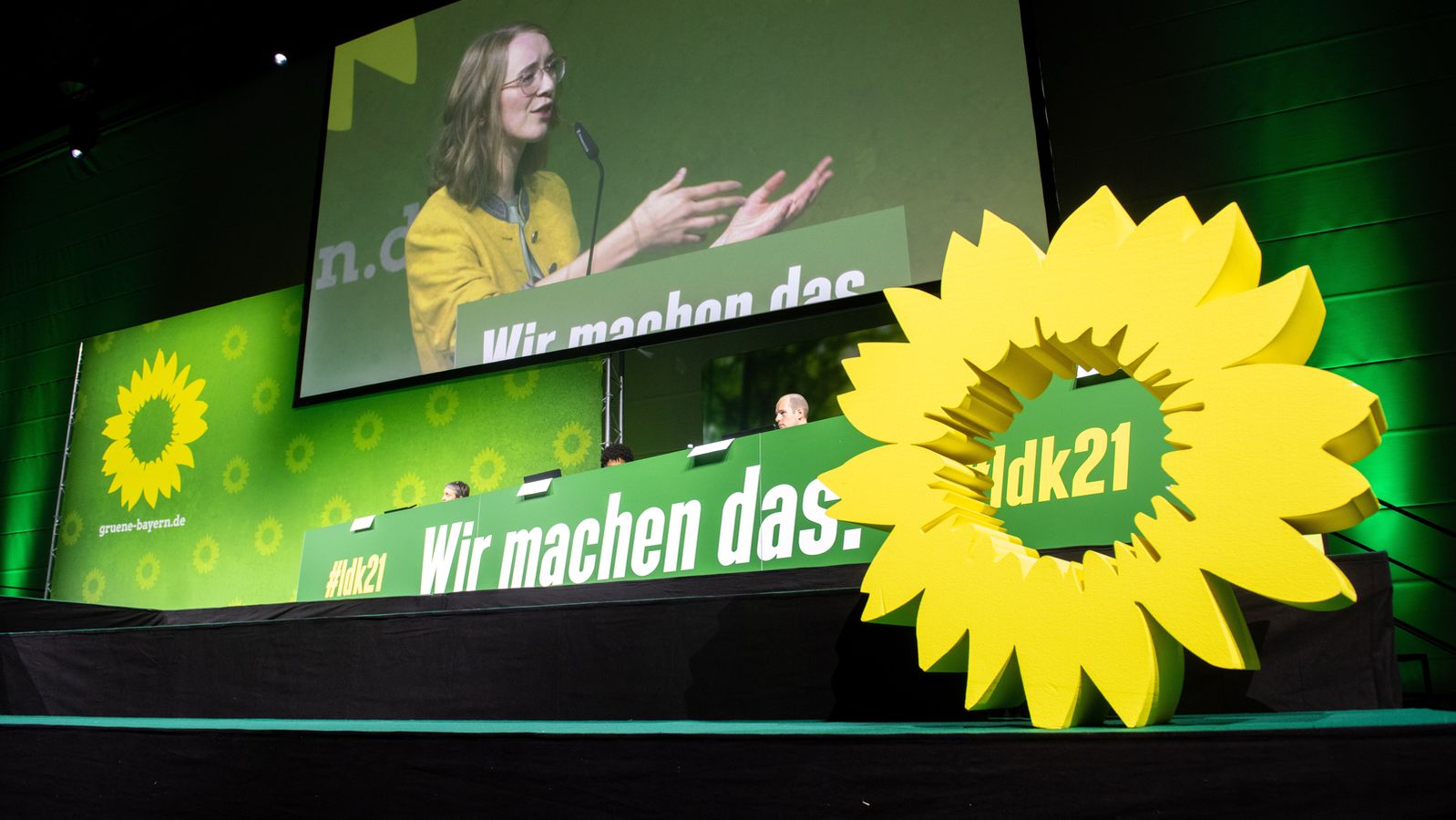The federal election was just six weeks ago – and at the state delegates’ conference for the Bavarian Greens, the word “state election” is used in almost every speech. The mood in Augsburg with the Greens is good, and most delegates are happy with the outcome of their concert at the end of September. After all, the Bavarian Green Party now sends 19 deputies to Berlin, compared to eleven in the previous legislative period.
With the tailwind from Berlin, the Greens now want to work toward a change of government the following year. From the point of view of the Green Party, the dismissal of the state government can only succeed if they pay more attention to the rural areas. “We have grown everywhere, but at a low level in rural areas,” says state president Eva Littenbauer. There is great potential for the voters out there, but big shows are needed for the villagers.
Shift movement must be paid
In order to create equal living conditions in all regions of Bavaria, from the perspective of greens, attractive local public transport is required. In their main proposal “Hand in Hand – Strengthening Rural Bavaria through Energy Transition and Climate Protection”, some well-known green goals can be read: ensuring bus connections at least every hour between 5am and midnight throughout Bavaria, for example.
The mobility transition for greens also includes a comprehensive network of bike paths and the legal right to high-speed broadband internet. The Greens argued that if working conditions were also improved in rural areas and digital work spread more widely, traffic could be avoided.
Energy transition as an economic stimulus program for rural areas
Thomas von Sarnovsky, the state’s co-chair, says the energy transition is of particular benefit to rural areas. “This is the largest economic stimulus plan in history.” Unfortunately, the state government has slowed the energy transition. Many billions lost. In Söder’s government, the CSU and Free Voters barred each other. The main move is now an outlook of what could be possible if the Greens were involved in governing.
Green Traffic Light Negotiators Ask for Support
Of course, the ongoing coalition negotiations are also an important topic at the state delegate conference. Not all delegates are on fire when it comes to compromises made. “Not really green anymore,” “too many compromises” is what they say, for example. Others are practical, and not all green content can be enforced.
This is how Anton Hofriter, one of the Green Party’s best candidates, argues. “Nearly 15 percent of people voted for us. But that also means 85 percent of people didn’t vote for us. That’s why we can’t get everything done.” Even if there is no general speed limit in Germany, other important points have been emphasized, Hofriter said. With the expansion of wind energy, for example, and the phasing out of coal. There is still a long way to go towards coalition. Negotiations will likely not end as planned in St. Nicholas Week, but they will continue the discussion before the alliance agreement is concluded.
The Greens will elect their state presidents on Sunday. So far, there is no opposition to the current head of state, Eva Littenbauer.

Communicator. Reader. Hipster-friendly introvert. General zombie specialist. Tv trailblazer

